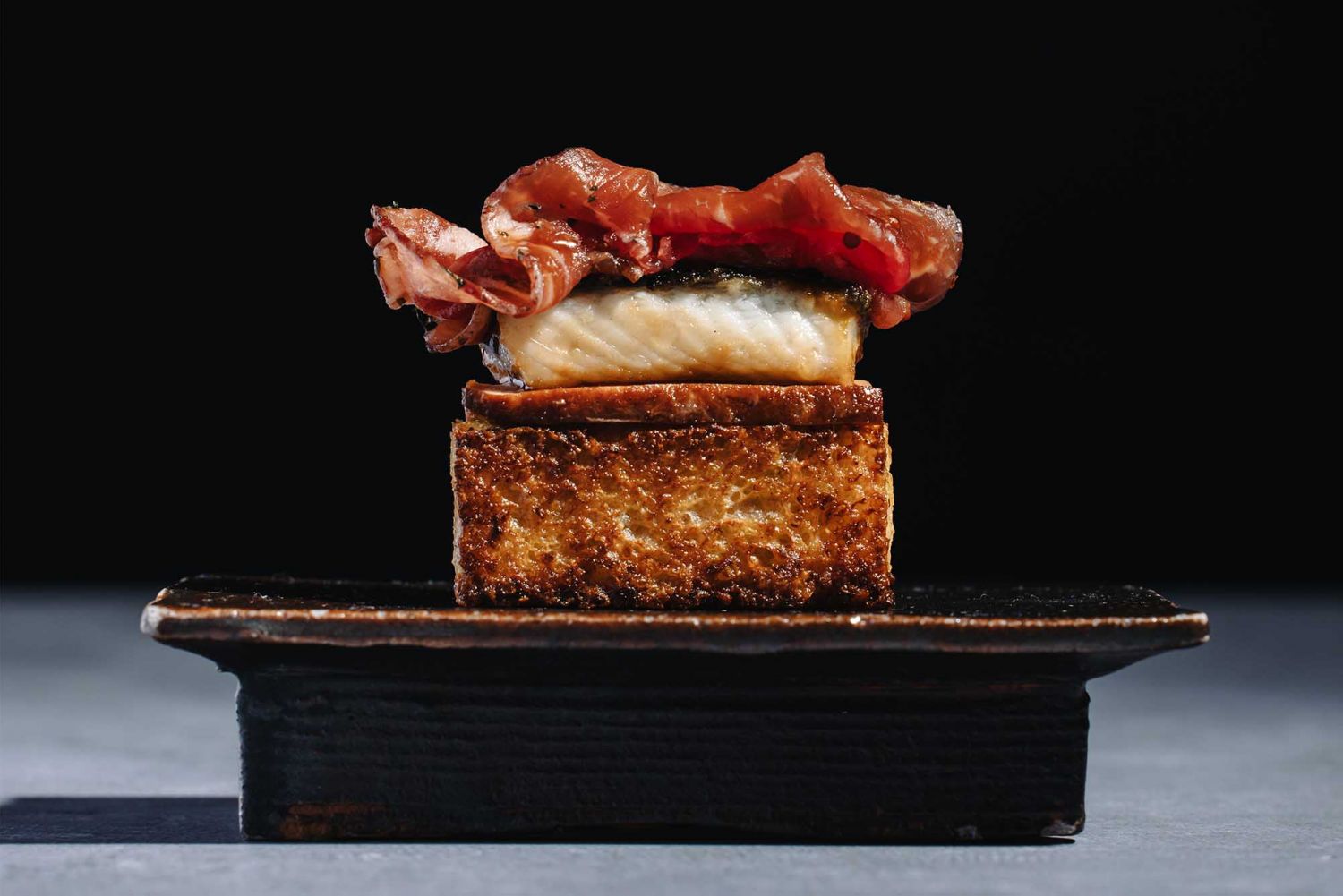Tatler Singapore sits down with the Swedish chef-owner, as well as executive chef Tristin Farmer to discuss the evolving situation F&B landscape
It was on a late Saturday afternoon when Tatler Dining finally got the chance to re-visit Zén, the newly minted three-Michelin starred restaurant, to have a chat with chef-owner Björn Frantzén and executive chef Tristin Farmer over champagne and a selection of items from their new menu.
Don’t miss: Michelin Guide Singapore 2021: Read The Full List Here
Chef Frantzén had just flown into Singapore from Stockholm after an 18-hour delay as a result of changing restrictions and missing paperwork to check in on Zén, the sister restaurant to Restaurant Frantzén in Sweden which ranks number seven on the list of the World’s 50 Best Restaurants.
“I was here in Singapore on the phone with just about everyone I knew in the travel industry trying to figure out how to get him into Singapore,” Farmer said with a laugh.
The chefs have just finished lunch at Zén, the only available slot they could get on such short notice (the irony is not lost on us), and they look relieved to have a chance to sit down for a few moments before they begin getting ready for the dinner service.
“Björn got in on Friday afternoon and we were able to have dinner at Odette last night. We also plan to visit Burnt Ends while he is here,” said Farmer.

On how Frantzén’s restaurants have held up in the pandemic
As we discuss Frantzén’s nightmarish travel experience, the conversation effortlessly moves into the difference in restrictions between here and Singapore.
“Sweden was pretty much normal. Besides an 8pm curfew, safe distancing and group size being reduced to four, there was not a lot of changes,” Frantzén said.
“Even though Sweden is more relaxed in terms of Covid-19 restrictions, the restaurant industry was hit just as hard though and it was interesting to see how both cultures have adapted to that and tried to make it work creatively,” he continued.
In Singapore, Zén’s team of chefs had no choice but to make it work as well. “We had to learn how to function in the new world immediately or our staff were not going to get salaries; and, of course, we were not okay with that,” Farmer said.
In fact, many may remember the indulgent caviar uni kombu doughnut the restaurant sold as a takeaway option during our Circuit Breaker period.
“We were finding ways to keep Zén alive and we came up with this idea to do a luxurious and expensive savoury doughnut that was filled with uni and caviar. We actually only expected to sell about four a day because they took ages to make and it was so expensive. But we were shocked to find that we were selling about a hundred each day. It really helped to pick business back up during that time,” enthused Farmer.
Frantzén added that both restaurants also share a Dropbox folder with recipes, so that they can maintain their symbiotic harmony while also being given the freedom to adjust meals based on their audience’s unique palettes.



